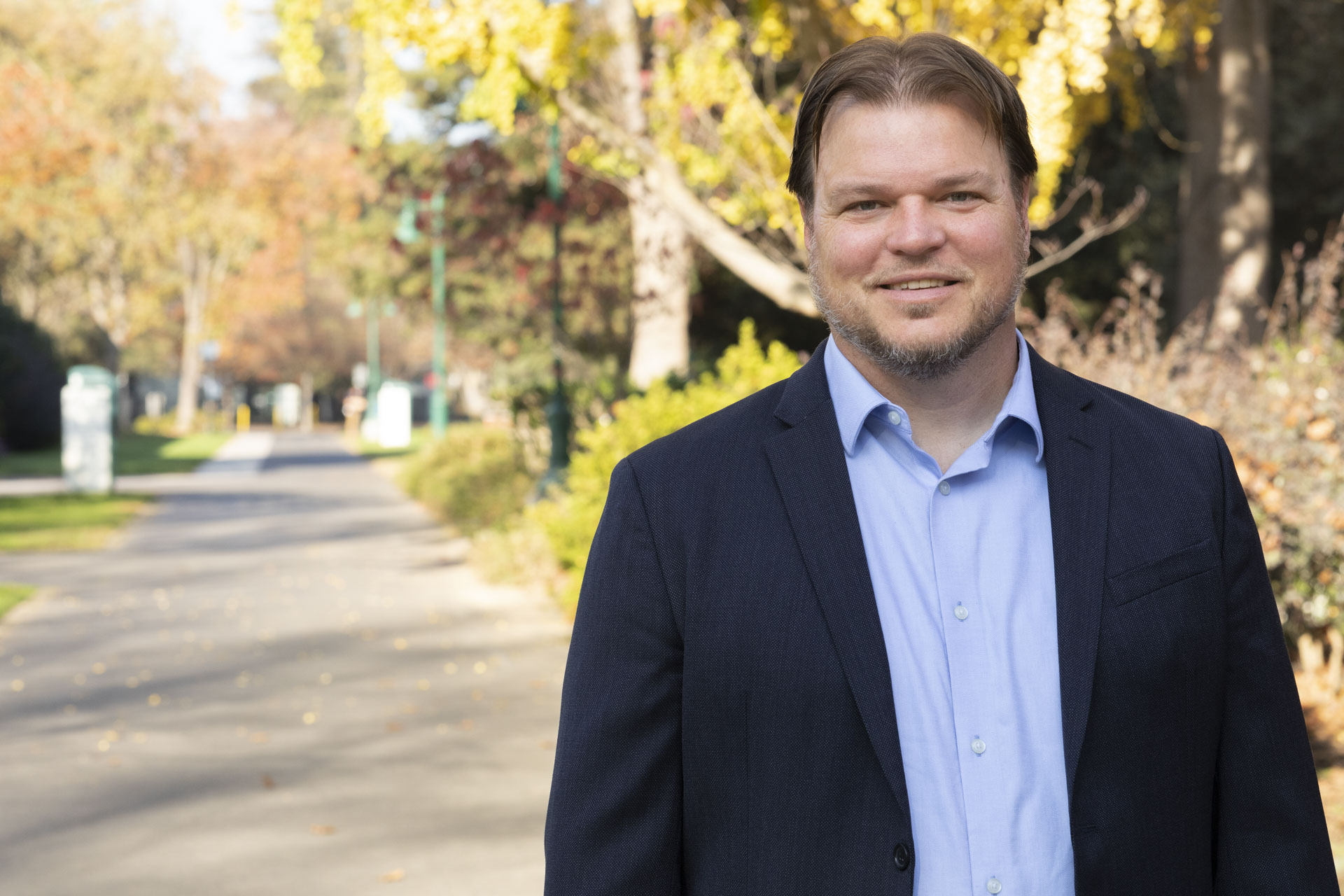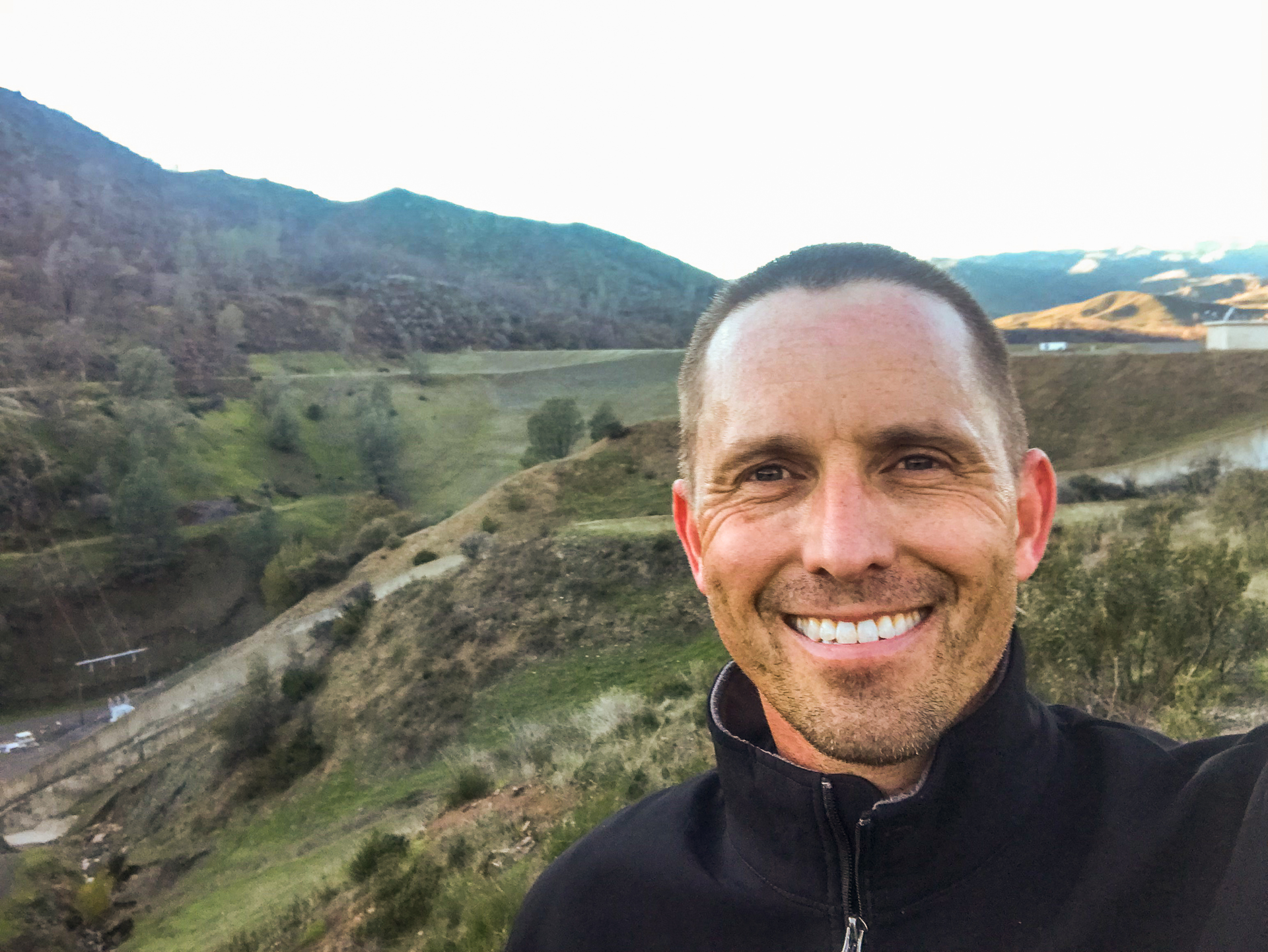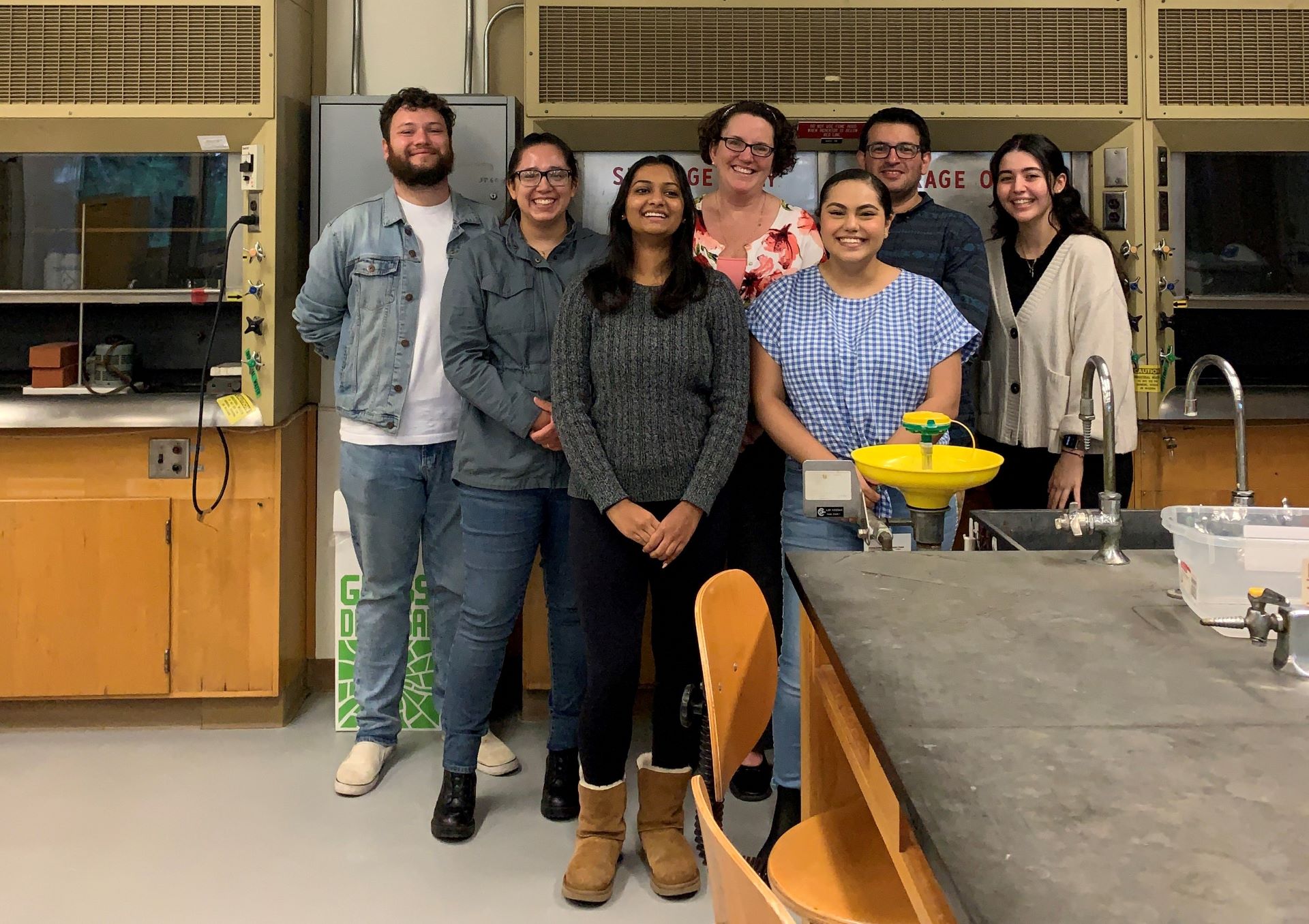Story Content
Path leading to where monkeys roam was set early for Sac State Anthropology professor
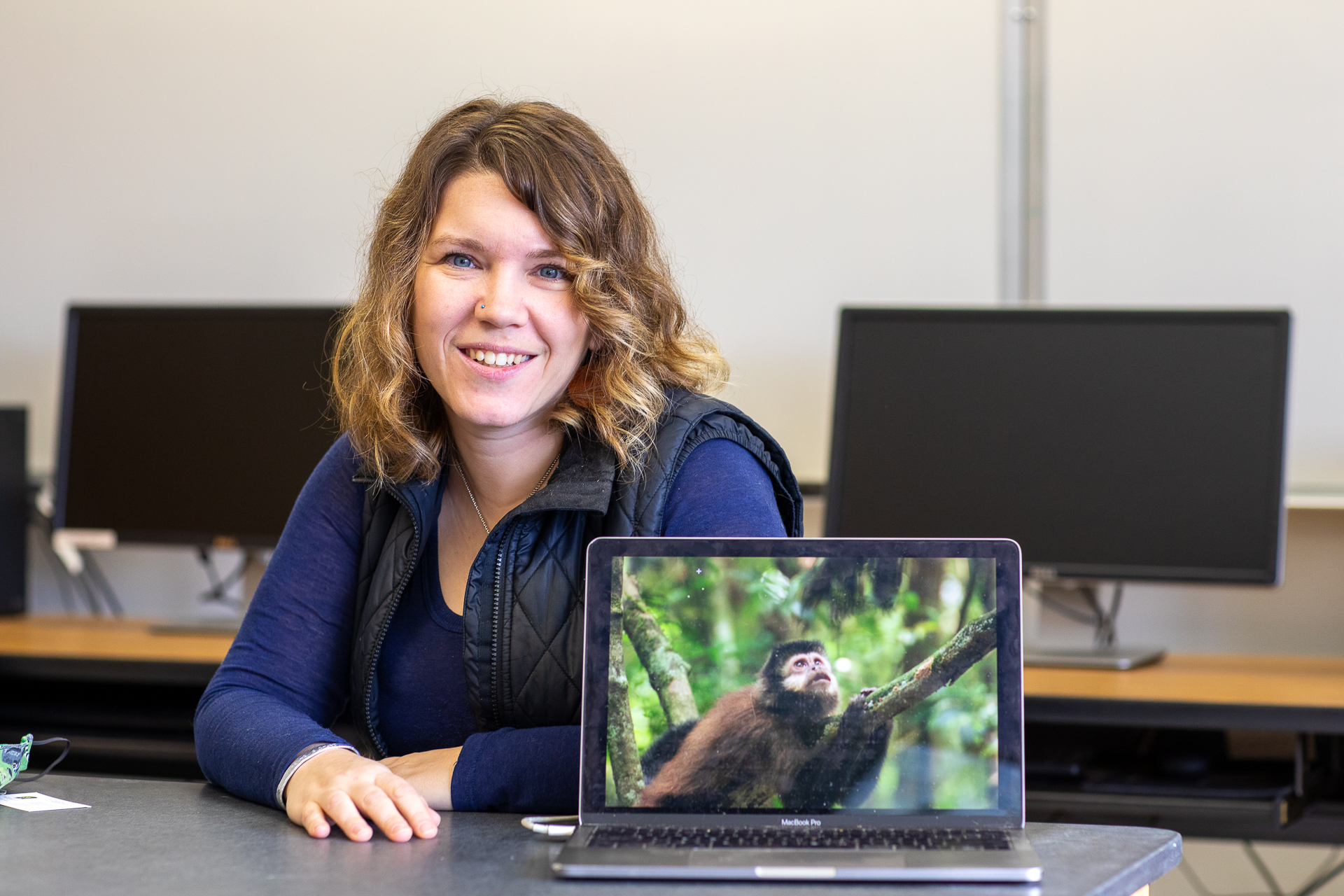
January 10, 2022
At 6 years old, Clara Scarry attended a book fair in Florida and discovered “My Life with the Chimpanzees,” by renowned scientist and conservationist Jane Goodall.
“I read it, and I was set,” Scarry said. “It put me on my path.”
The book helped steer her toward a career as a biological anthropologist who documents the habits and behaviors of wild primates in remote locations, including Argentina and Ecuador. Now, as an assistant professor of Anthropology at Sacramento State, she is sharing her knowledge and adventures with her students.
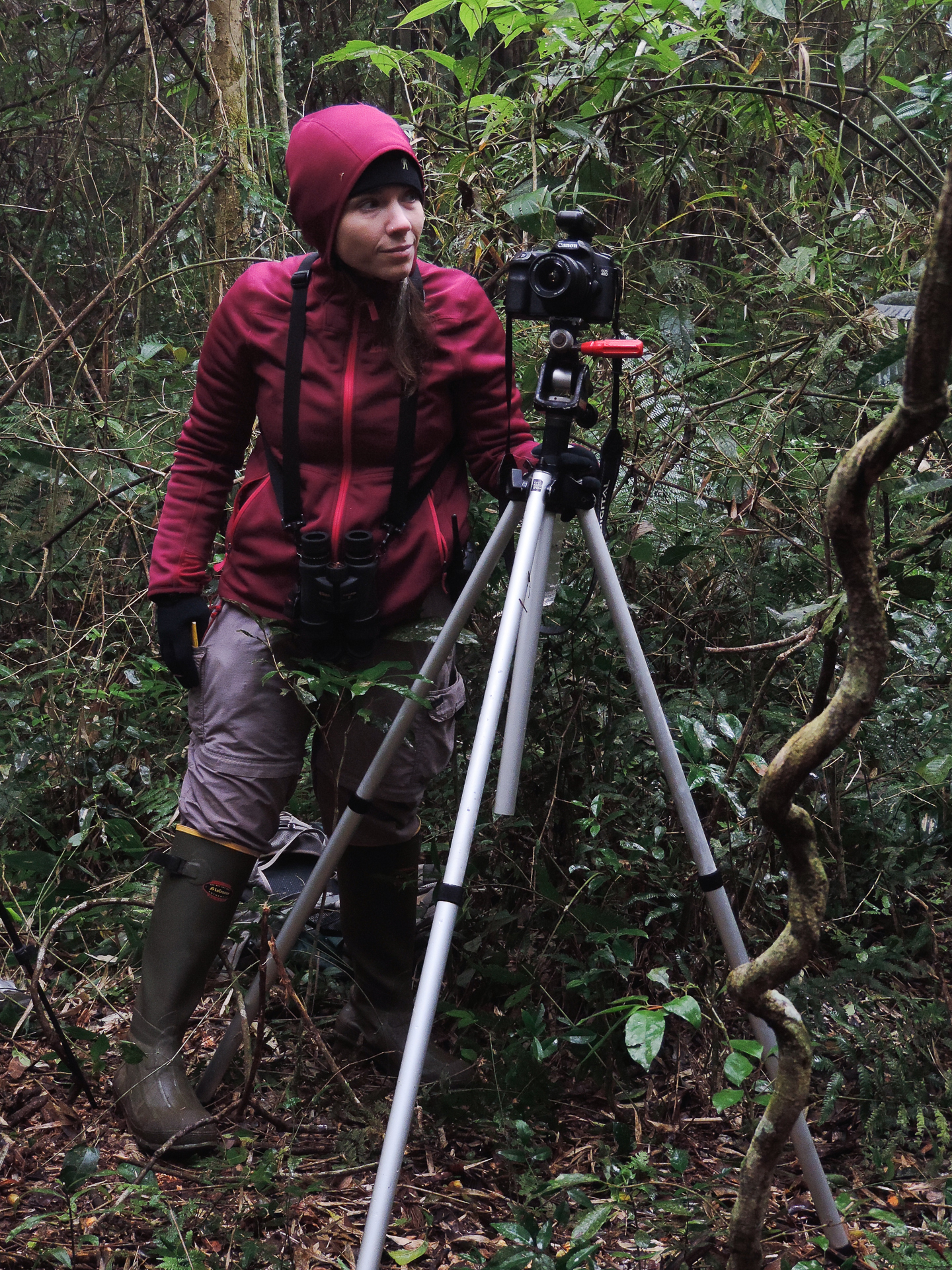
Scarry recently won a $180,000 grant from the National Science Foundation to bring students to her research site at Iguazú National Park in Argentina, where she leads a study of the ecology of tufted capuchin monkeys.
The grant is tied to Sac State’s status as a university with a sharp focus on traditionally underserved students, Scarry said.
“A lot of our students work and have responsibilities at home, and can’t be in the field for months at a time,” she said. The grant will fund month-long stints for 12 Sac State scholars.
Among them is Stevie Capps, an Anthropology graduate student who will join Scarry at the research site in March. Capps had planned to participate last year, but the COVID-19 pandemic caused the excursion to be canceled.
The upcoming trip means more than “an amazing experience in a new country,” said Capps, a first-generation college student and Sacramento native.
“My education will benefit immensely from this journey. Fieldwork, especially in primatology, is the building block to becoming a great researcher.”
Capps said she felt somewhat lost after transferring to Sac State from a community college, but Scarry became her mentor, someone who “made me fall in love with learning again.” Scarry and other faculty “encouraged and supported me every step of the way.”
Scarry, the daughter of two anthropologists, attended high school in North Carolina, just down the road from the highly respected Duke University Lemur Center. As a senior, she worked as an intern at the sanctuary, observing the primates and collecting data.
She earned two undergraduate degrees at Arizona State University and did her graduate work at Stony Brook University in New York, where she earned master’s and doctoral degrees in Biological Anthropology.
While at Stony Brook, she began conducting fieldwork on capuchin monkeys in the subtropical forest of Argentina under the supervision of her faculty advisor. Scarry’s research focuses on aggression among groups of monkeys, decision-making and group coordination, and ranging behavior.
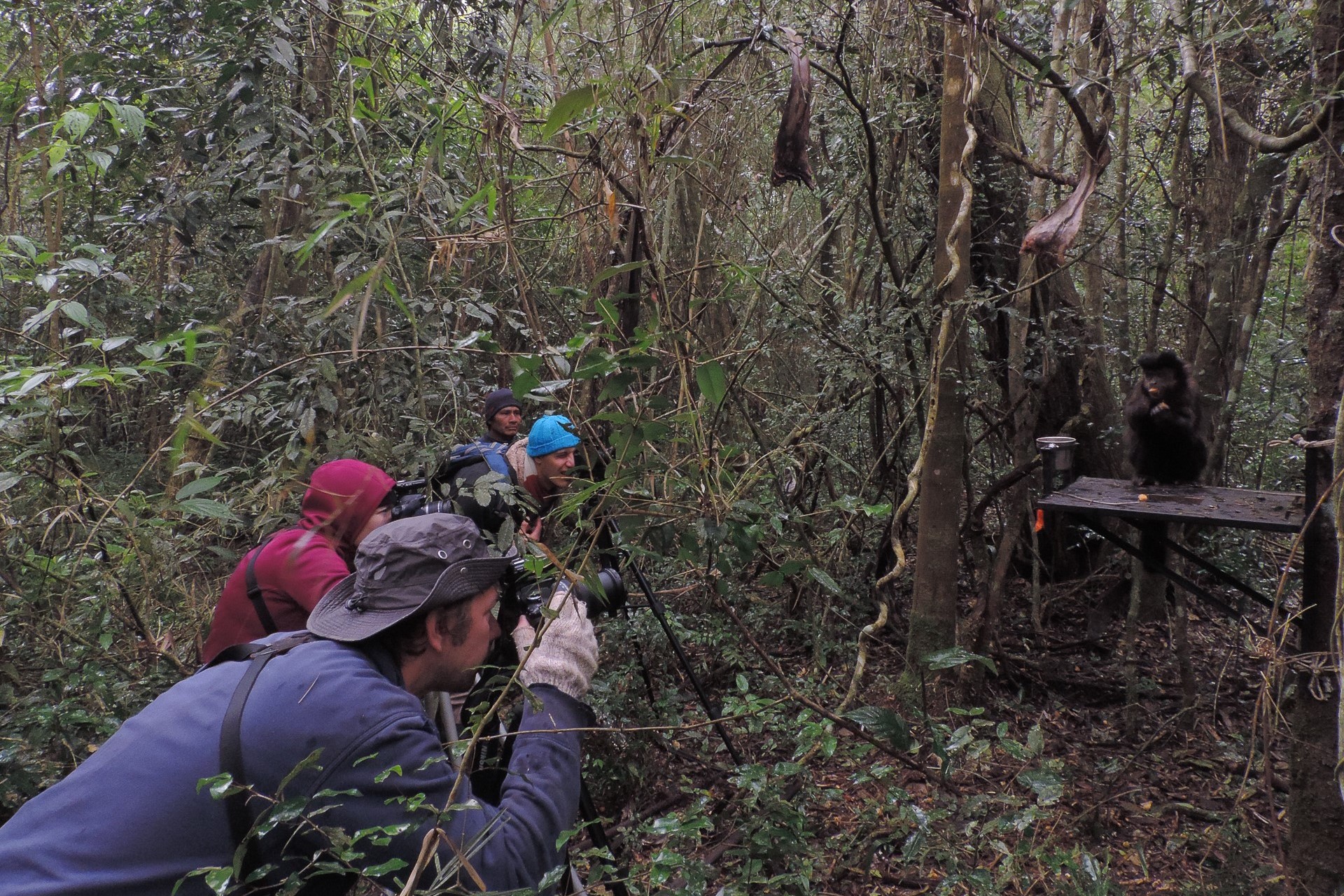
Primate studies shed light on the evolution of human behavior, said Scarry, who joined Sac State in 2018.
“If you want to understand how humans became humans, you look at primates,” which are our closest genetic match in the animal world, she said.
Scarry has studied hierarchies of monkeys, their cooperation with one another in defending their home ranges, and their methods for helping one another find food.
The environment at the research site in Argentina is rugged, beautiful, and sometimes precarious. In the field, Scarry has been stung by wasps more than 100 times and must navigate a landscape inhabited by poisonous snakes and spiders. Along with notebooks and camera equipment, she often carries a machete to hack through overgrown walking trails in dense forest.
Scarry said the capuchins she tracks may look cute and amiable, but “they can be real jerks,” and are known for mischievous and aggressive behavior, including stealing food from tourists who visit the area’s spectacular waterfalls.
The payoff from observing them can be magical, Scarry said.
“We get to see things that very few people do,” she said. “Going to the secret places in the forest where the monkeys gather, and sitting on top of a cliff watching them bed down for the night; watching them when the mist lifts in the morning. Each day we have incredible experiences.”
Those moments in the field remind her of the words her childhood hero, Jane Goodall, once scribbled to the future researcher on the inside cover of one of her books.
“Follow Your Dreams.”
Media Resources
Faculty/Staff Resources
Looking for a Faculty Expert?
Contact University Communications
(916) 217-8366
communications@csus.edu
